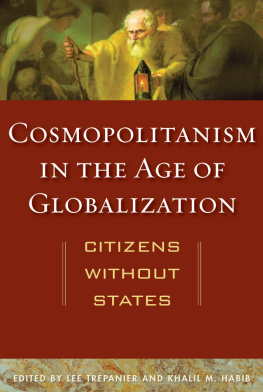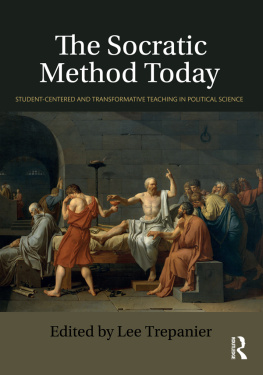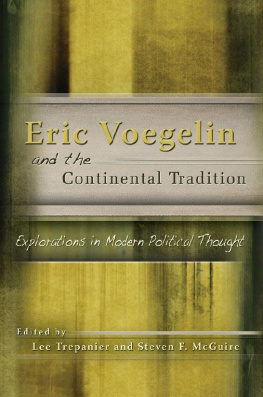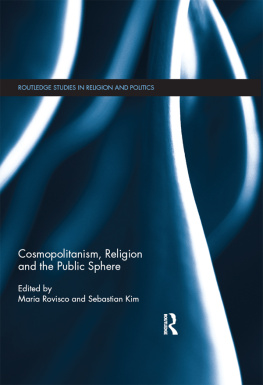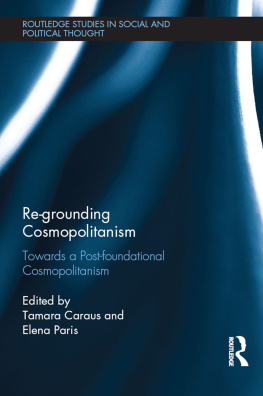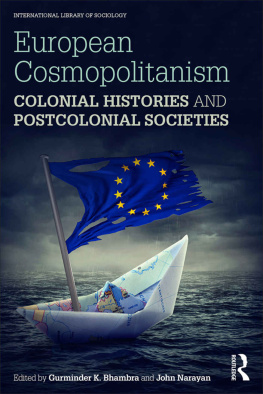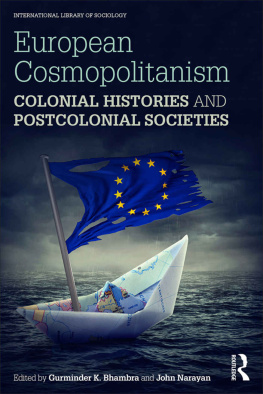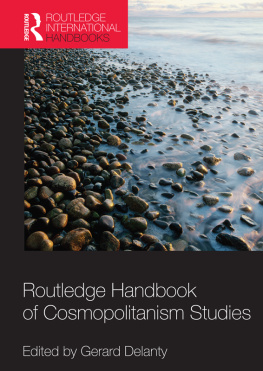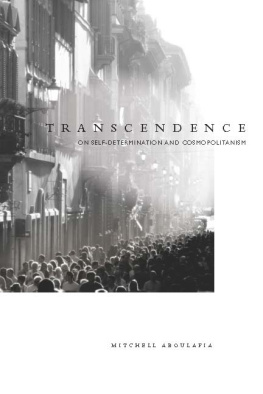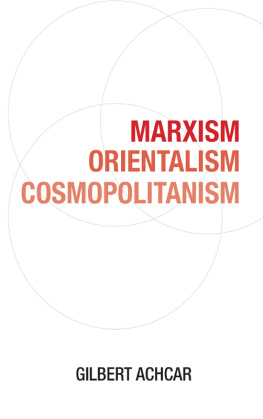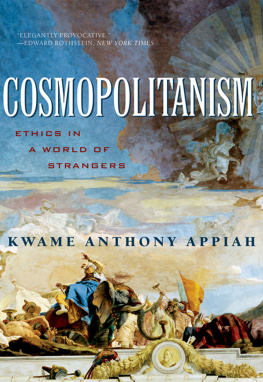COSMOPOLITANISM
IN THE AGE OF
GLOBALIZATION
COSMOPOLITANISM
IN THE AGE OF
GLOBALIZATION
Citizens without States
Edited by Lee Trepanier and Khalil M. Habib
The editors would like to thank Stephen Wrinn and his staff for
their support and assistance in this project. In addition, Lee wishes to
thank MiJung, and Khalil would like to thank Cressida, Jordan, and
John Owen, for their love and support.
Copyright 2011 by The University Press of Kentucky
Scholarly publisher for the Commonwealth,
serving Bellarmine University, Berea College, Centre
College of Kentucky, Eastern Kentucky University,
The Filson Historical Society, Georgetown College,
Kentucky Historical Society, Kentucky State University,
Morehead State University, Murray State University,
Northern Kentucky University, Transylvania University,
University of Kentucky, University of Louisville,
and Western Kentucky University.
All rights reserved.
Editorial and Sales Offices: The University Press of Kentucky
663 South Limestone Street, Lexington, Kentucky 40508-4008
www.kentuckypress.com
15 14 13 12 11 5 4 3 2 1
Cataloging-in-Publication Data is available from the Library of Congress.
ISBN 978-0-8131-3418-5 (cloth: alk. paper)
ISBN 978-0-8131-3470-3 (pbk.: alk. paper)
This book is printed on acid-free paper meeting
the requirements of the American National Standard
for Permanence in Paper for Printed Library Materials.
Manufactured in the United States of America.
| Member of the Association of
American University Presses |
Contents
Lee Trepanier and Khalil M. Habib
Mary P. Nichols
Thomas L. Pangle
John von Heyking
Khalil M. Habib
Mary P. Nichols
Richard Velkley
Michael Palmer
Gaelan Murphy
Lee Trepanier
Luigi Bradizza
Joseph R. Fornieri
L. Joseph Hebert Jr.
Paul Seaton
Brian Domitrovic
Lee Trepanier and Khalil M. Habib
Introduction
Since the end of the cold war and the advent of globalization, interest in cosmopolitanism, with its ideas of global justice and citizenship and the like, has been on the rise. Although cosmopolitanism is not new, it is easy to see why it has gripped the post-cold-war imagination. Cosmopolitan is a term often used to describe a citizen of the world: an enlightened individual who believes he or she belongs to a common humanity or world order rather than to a set of particular customs or traditions. Cosmopolitans consequently believe that peace among nation-states is possible only if they transcend their parochial identities and interests in the name of a global state or consciousness. To this extent cosmopolitanism appears democratic in spirit.
This inspiration for global community has its roots in classical antiquity, where politics was defined as being based upon reason rather than patriotism or group sentiment.
Kant is often cited as the founder of modern cosmopolitanism. At the end of the eighteenth century, Kant wrote of the cosmopolitan condition as a rational necessity to link nations together so that a violation of rights in one part of the world would be felt everywhere.
For contemporary cosmopolitan theorists, a new methodology and theory are required to address these global risks. Because of globalization, where ideas, people, culture, institutions, and technologies have become global commodities in an integrated worldwide economy, new threats like terrorism, disease, and climate change pose a challenge not to just a few nation-states but to all people. Rather than approaching these problems from the perspective of the nation-state or from outdated forms of cosmopolitanism, contemporary cosmopolitan theorists call for a new methodology with universalism at its center. Treating the human species as a single subject, with its differences recognized but ultimately discarded for conceptual consistency, universalism equates itself with globalization. It is only now, when globalization has reached every corner in the world, that we can treat humanity as a single object of study by adopting a universalistic framework to understand and to evaluate ourselves.
International relations and law are two disciplines where cosmopolitan theorists have made inroads with their new theory and methodology. Although the Westphalian model is still operative today, that does not mean it cannot be changed, especially as international relations and law are being reconstructed because of the pressures of globalization.
Cosmopolitan theorists have also contributed to political theory, philosophy, and the social sciences in the revival of Kants ideas of a universal history and perpetual peace. Unable to meet the pressures of globalization, concepts like democracy and citizenship must be transformed in order to have relevancy. Cosmopolitanism is the crucial step in transforming these concepts such that they will continue to possess importance.
This cosmopolitan visiona universal and peaceful state that permits local attachments and tolerates minority rightshas dominated the discussion of global events and the conceptualization of ideas like democracy and citizenship. Although there have been critics of cosmopolitanismCarl Schmitt, Jacques Ellul, Neil Postman, Wendell Berry, Mark Mitchellthese thinkers either call for a withdrawal from the world that is characterized by globalization or advocate a discredited ideology to replace it, such as fascism. These critics may have valid objections to cosmopolitanism; however, they do not have a realistic and engaged response to the contemporary reality of globalization and cosmopolitanism. Whether or not one favors cosmopolitanism, the reality is that it exists and one must confront rather than withdraw from it.
What this subject still needs is an account of cosmopolitanism that is both critical and engaged. It needs to be comprehensive in terms of both its breadth and its depth. The subject is important and dynamic enough to warrant an examination of a range of perhaps sometimes uncomfortable debates. This volume addresses the topic from its beginnings to its contemporary manifestations, as cosmopolitanism has had a long and variegated history.
This new and unique volume aims to provide a thorough and in-depth understanding of cosmopolitanism by bringing together the work of political scientists, philosophers, historians, and economists. It seeks to examine the concept of cosmopolitanism in historical, theoretical, and comparative contexts. In addition to the range of interpretations on the idea of cosmopolitanism, this volume supplies readers with self-contained essays that focus on specific thinkers or topics related to their interest, while also providing a clearer overview of the history and the debates that characterize the field of cosmopolitanism than is usually offered in the rapidly growing body of literature on the subject. It therefore will be possible to build a rich and diverse framework for a thoughtful analysis of cosmopolitans current claims and limits, which in turn will enable us to better identify and define it and develop a deeper understanding and appreciation of it.

